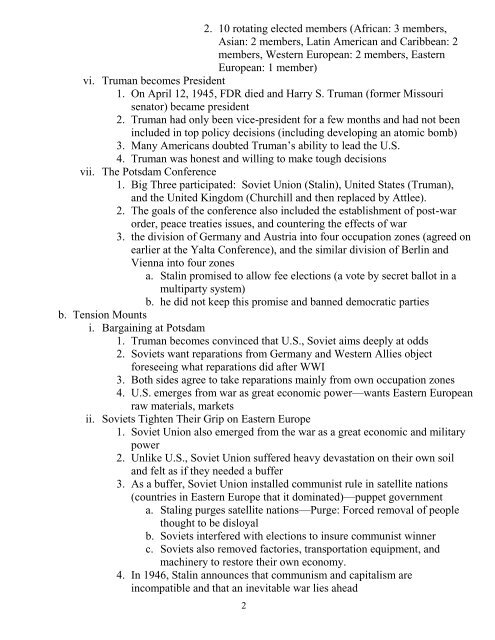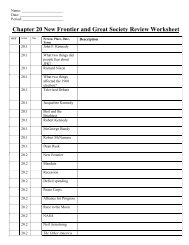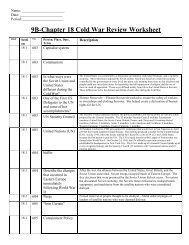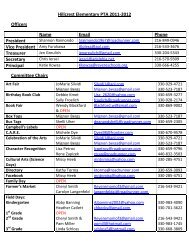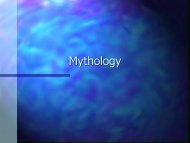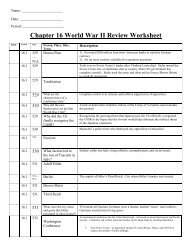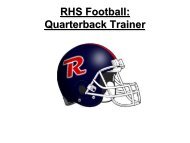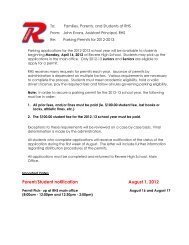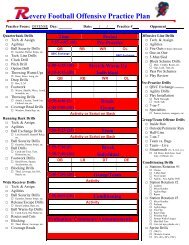9B-Chapter 18 Cold War Notes - Revere Local Schools
9B-Chapter 18 Cold War Notes - Revere Local Schools
9B-Chapter 18 Cold War Notes - Revere Local Schools
Create successful ePaper yourself
Turn your PDF publications into a flip-book with our unique Google optimized e-Paper software.
2. 10 rotating elected members (African: 3 members,<br />
Asian: 2 members, Latin American and Caribbean: 2<br />
members, Western European: 2 members, Eastern<br />
European: 1 member)<br />
vi. Truman becomes President<br />
1. On April 12, 1945, FDR died and Harry S. Truman (former Missouri<br />
senator) became president<br />
2. Truman had only been vice-president for a few months and had not been<br />
included in top policy decisions (including developing an atomic bomb)<br />
3. Many Americans doubted Truman’s ability to lead the U.S.<br />
4. Truman was honest and willing to make tough decisions<br />
vii. The Potsdam Conference<br />
1. Big Three participated: Soviet Union (Stalin), United States (Truman),<br />
and the United Kingdom (Churchill and then replaced by Attlee).<br />
2. The goals of the conference also included the establishment of post-war<br />
order, peace treaties issues, and countering the effects of war<br />
3. the division of Germany and Austria into four occupation zones (agreed on<br />
earlier at the Yalta Conference), and the similar division of Berlin and<br />
Vienna into four zones<br />
a. Stalin promised to allow fee elections (a vote by secret ballot in a<br />
multiparty system)<br />
b. he did not keep this promise and banned democratic parties<br />
b. Tension Mounts<br />
i. Bargaining at Potsdam<br />
1. Truman becomes convinced that U.S., Soviet aims deeply at odds<br />
2. Soviets want reparations from Germany and Western Allies object<br />
foreseeing what reparations did after WWI<br />
3. Both sides agree to take reparations mainly from own occupation zones<br />
4. U.S. emerges from war as great economic power—wants Eastern European<br />
raw materials, markets<br />
ii. Soviets Tighten Their Grip on Eastern Europe<br />
1. Soviet Union also emerged from the war as a great economic and military<br />
power<br />
2. Unlike U.S., Soviet Union suffered heavy devastation on their own soil<br />
and felt as if they needed a buffer<br />
3. As a buffer, Soviet Union installed communist rule in satellite nations<br />
(countries in Eastern Europe that it dominated)—puppet government<br />
a. Staling purges satellite nations—Purge: Forced removal of people<br />
thought to be disloyal<br />
b. Soviets interfered with elections to insure communist winner<br />
c. Soviets also removed factories, transportation equipment, and<br />
machinery to restore their own economy.<br />
4. In 1946, Stalin announces that communism and capitalism are<br />
incompatible and that an inevitable war lies ahead<br />
2


